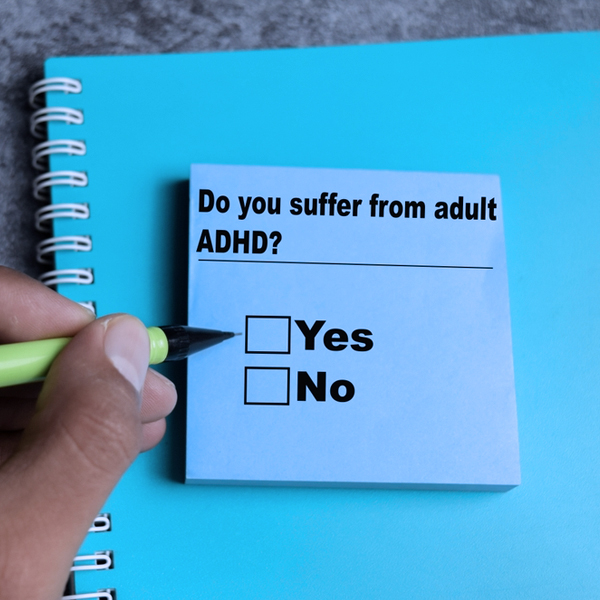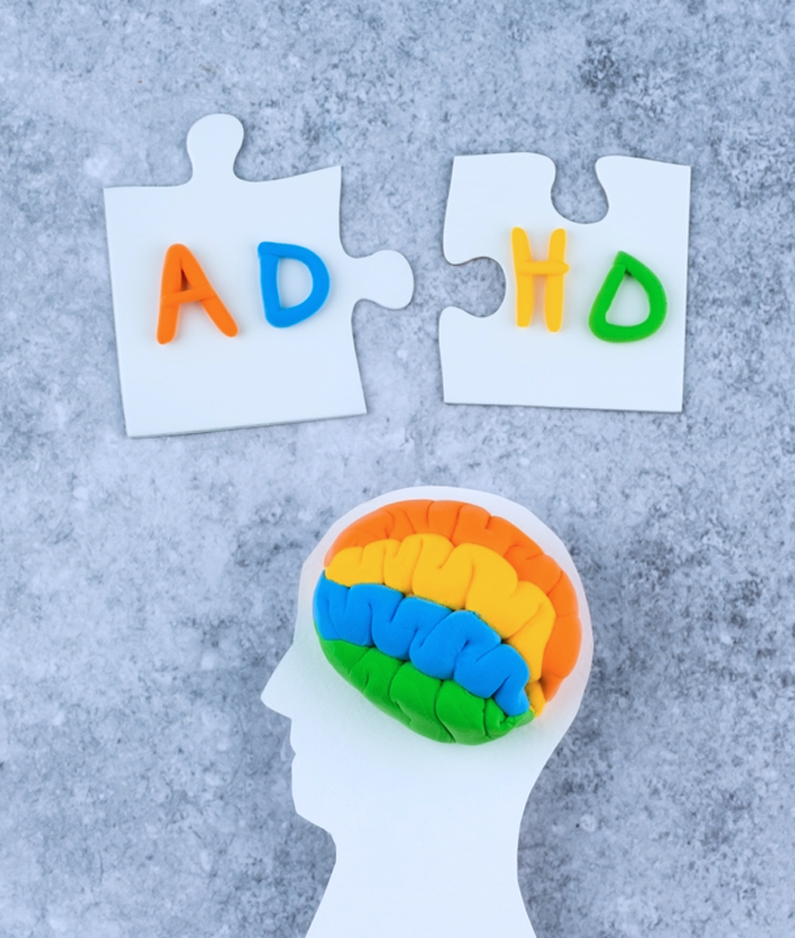
Attention Deficit Hyperactivity Disorder (ADHD) in Adults
ADHD is a neurodevelopmental condition characterised by symptoms of inattention, hyperactivity, and impulsivity. While it is often thought of as a childhood condition, ADHD can affect people of all ages, intelligence levels, and social backgrounds. The term ADD (Attention Deficit Disorder) is no longer used.
ADHD symptoms can vary but often include challenges with:
- Focus and concentration
- Organisation
- Performance at work or in education
- Time management
- Forgetfulness
- Impulsivity
- Procrastination
- High energy levels
Types of ADHD
ADHD is categorised into three types, depending on the predominant symptoms
1. Predominantly Inattentive Type
- Mainly issues with attention, focus, and concentration.
2. Predominantly Hyperactive/Impulsive Type
- Primarily symptoms of hyperactivity and impulsivity.
3. Combined Type
- A significant number of both inattentive and hyperactive/impulsive symptoms.


How Does ADHD Develop?
ADHD symptoms usually appear in early childhood and are often noticeable before the age of 12. While the exact cause of ADHD is unknown, research suggests it is likely due to a combination of factors, including.
- Genetics: A strong hereditary component.
- Neurochemical Imbalances: Issues with certain brain chemicals.
- Environmental Factors: Premature birth, low birth weight, epilepsy, or brain injury.

How to Get Assessed and Treated
There is no single test for ADHD. Diagnosis is based on a detailed clinical assessment, including.
- A comprehensive clinical interview.
- Collateral information from family, friends, or employers.
- Rating scales completed by the individual and, if possible, family members or partners.
Treatment Options
If diagnosed with ADHD, treatment options include
Stimulant and non-stimulant medications to manage symptoms.
Cognitive Behavioural Therapy (CBT), counselling, or coaching.
Exercise, a balanced diet, and reducing drugs or alcohol.
Under the Equality Act 2010, employers and educational institutions must make reasonable adjustments to support individuals with ADHD.
Helping individuals and their families understand ADHD.
Joining reputable ADHD groups or online forums.


Comorbid Mental Health Conditions
ADHD often occurs alongside other conditions, such as.
- Autism Spectrum Disorder (ASD)
- Tic disorders
- Anxiety
- Depression
- Substance misuse
- 1. ADDISS (The National Attention Deficit Disorder Information and Support Service)
- 2. Royal College of Psychiatrists
- 3. NICE (National Institute for Health and Care Excellence)
- 4. ADHD Foundation
- 5. ADHD Support Group
- 6. ADHD Partnership
- 7. UKAAN (UK Adult ADHD Network)
Resources for Adult ADHD in the UK
If you or a loved one is living with ADHD, you’re not alone. There are many reputable organisations and resources in the UK that provide information, support, and guidance. Below is a list of trusted resources to help you better understand ADHD and find the support you need.
Online Resources
Provides information, support, and resources for individuals with ADHD and their families.
Website: www.addiss.co.uk
Offers reliable information and resources on ADHD for individuals, families, and healthcare professionals.
Website: www.rcpsych.ac.uk
Provides guidelines and recommendations for the diagnosis and management of ADHD.
Website: www.nice.org.uk
A charity offering support, information, and guidance for individuals with ADHD and their families.
Website: www.adhdfoundation.org.uk
Provides support and information, including a helpline, support groups, and training courses.
Website: www.adhdsupportgroup.org.uk
Aims to raise awareness of ADHD and provide support and resources for individuals and families.
Website: www.adhdpartnership.org.uk
Focuses on improving the diagnosis and treatment of ADHD in adults.
Website: www.ukaan.org
Take the First Step Toward Recovery
If you or a loved one is struggling with depression, don’t wait to seek help. Contact New Healing Solutions Clinic (NHSC) today for an expert assessment and personalised treatment plan. Begin your journey to improved mental health and well-being.
Address
Woodland Drive Medical Centre Woodland Drive Barnsley S70 6QW
Contact NHSC today
01226 282 535Send us a Mail
info@newhealingsolutions.co.ukOpening Time
9am to 5pm - Monday to Friday

